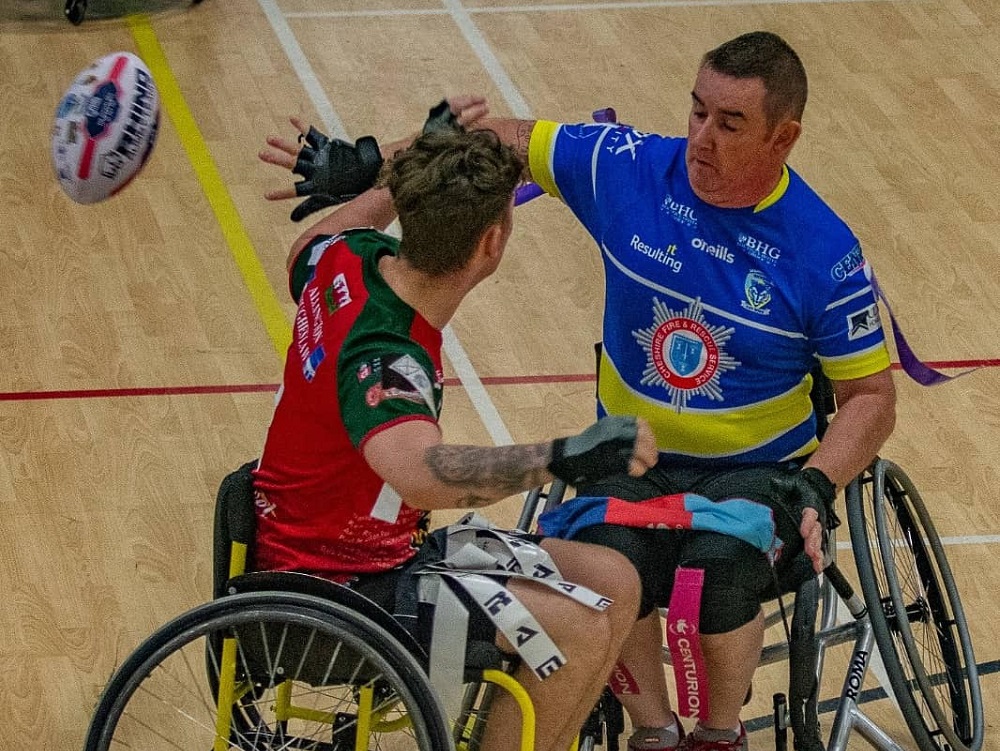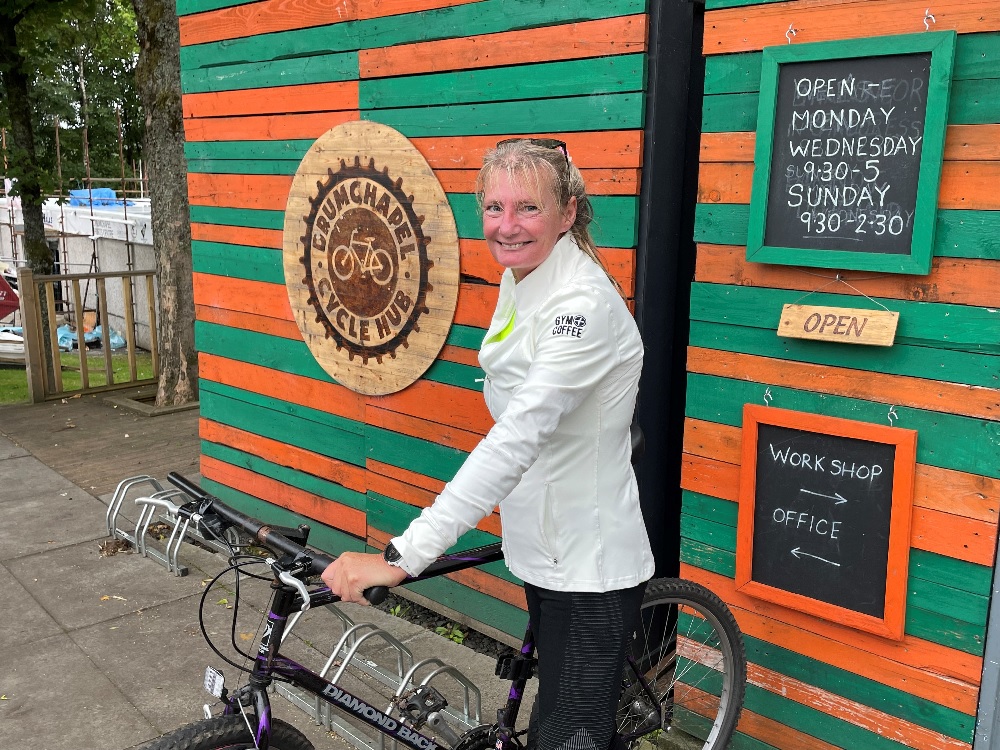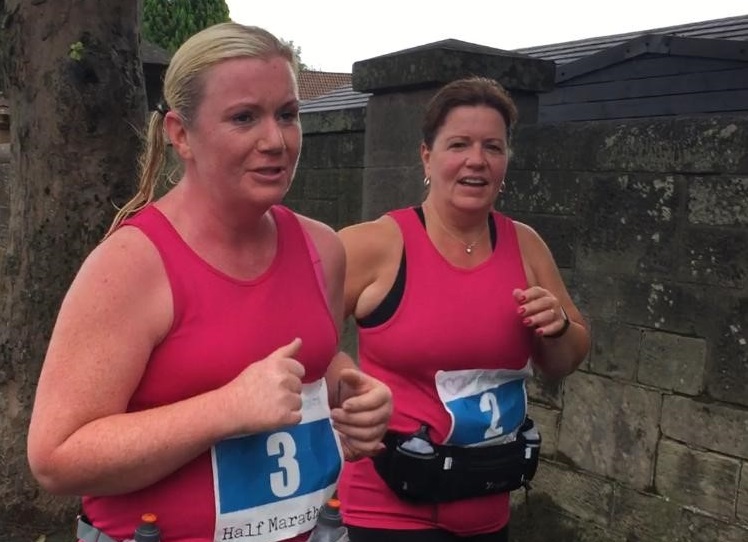Sport has helped Alan Izzard come through the darkest period of his life.
A former army veteran from Manchester, now living near Kirriemuir in Angus, Alan turned to sport to help him to find himself again.
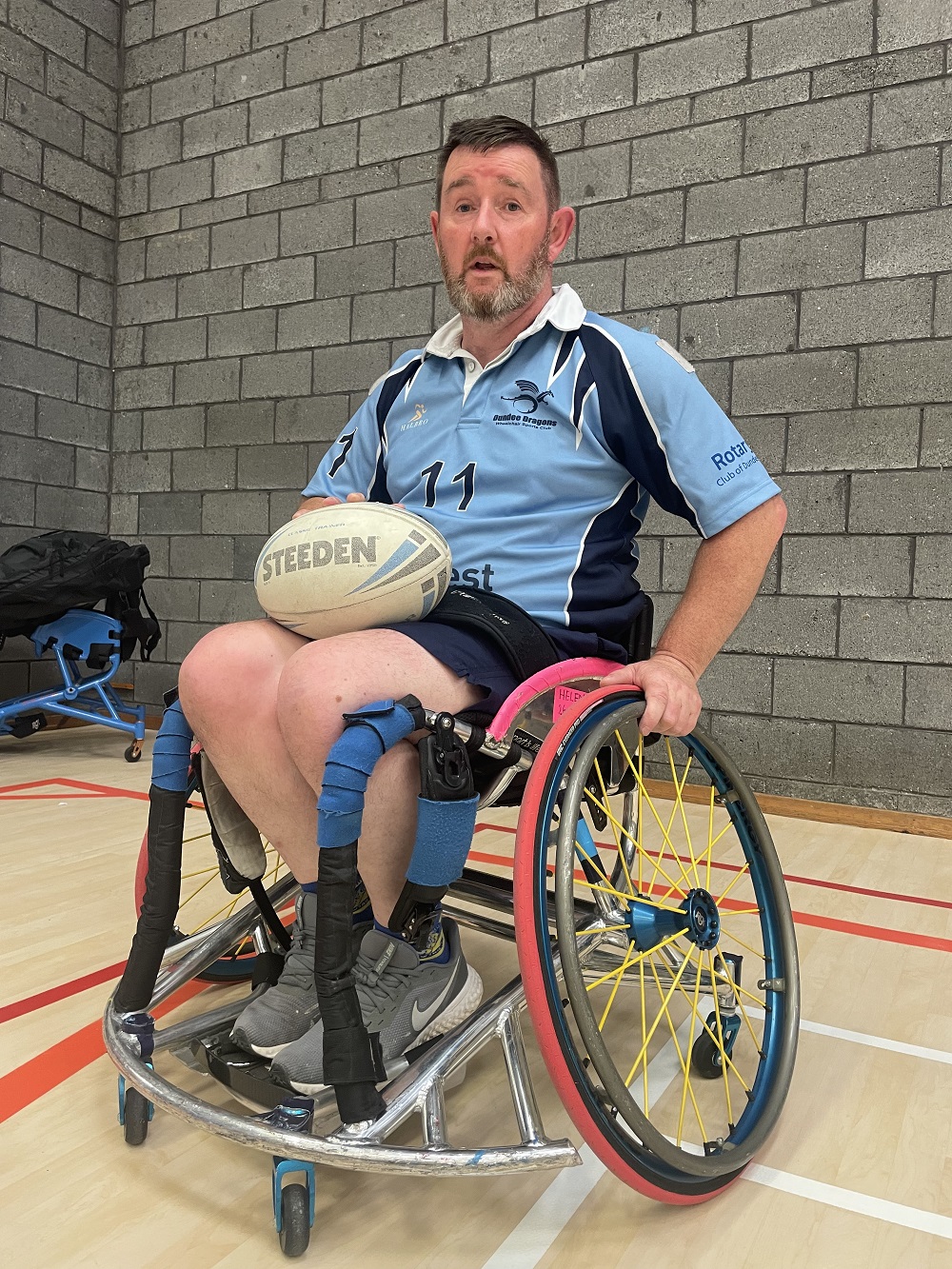 After serving in Germany, Cyprus, Iraq, Kuwait, Falklands and Yugoslavia over a 14-year period, Alan left the army.
After serving in Germany, Cyprus, Iraq, Kuwait, Falklands and Yugoslavia over a 14-year period, Alan left the army.
In 2003, he suffered a major mental health crisis consisting of severe post-traumatic stress disorder (PTSD), depression, anger management and anxiety, all relating to his armed service. It was so severe he was asked to admit himself into hospital by his doctor or be sectioned.
“I genuinely lost two years of my life. My head was all over the place, I was very suicidal, confused and was suffering from a very short attention span.
“It was a huge decision, but my wife talked me around into being admitted as she and the doctor thought it would be better for me in the long run.
“After spending eight months in a psychiatric hospital, I was then on the road to recovery, and this is when sport answered my call for help.”
“An outreach worker suggested going to the golf driving range to work on my concentration.
“I physically couldn’t concentrate for longer than 5 seconds, so I started by just trying to concentrate on the golf ball. This then build up over time to swinging the club and hitting the ball, and then hitting the ball certain distances using different clubs.
“My progress on the driving range really supported my mental health, and I was seeing real difference in my home life – it ultimately saved me from losing my family.”
After stabilising his health, Alan then went on to try many different sports and even had trials for the Invictus Games. However, Alan damaged his foot when in service and after eight operations and a foot fusion it was at this point that Alan started to use a wheelchair for mobility issues.
The rugby league club, Warrington Wolves started a wheelchair rugby team and Alan was one of the first players to join. Shortly after joining, Alan knew this was the sport for him.
“I love wheelchair rugby. It has helped me to understand that life isn’t a dark hole I spent many years in.
It doesn’t matter how I am feeling before playing, as I always know I will leave with a smile on my face.”
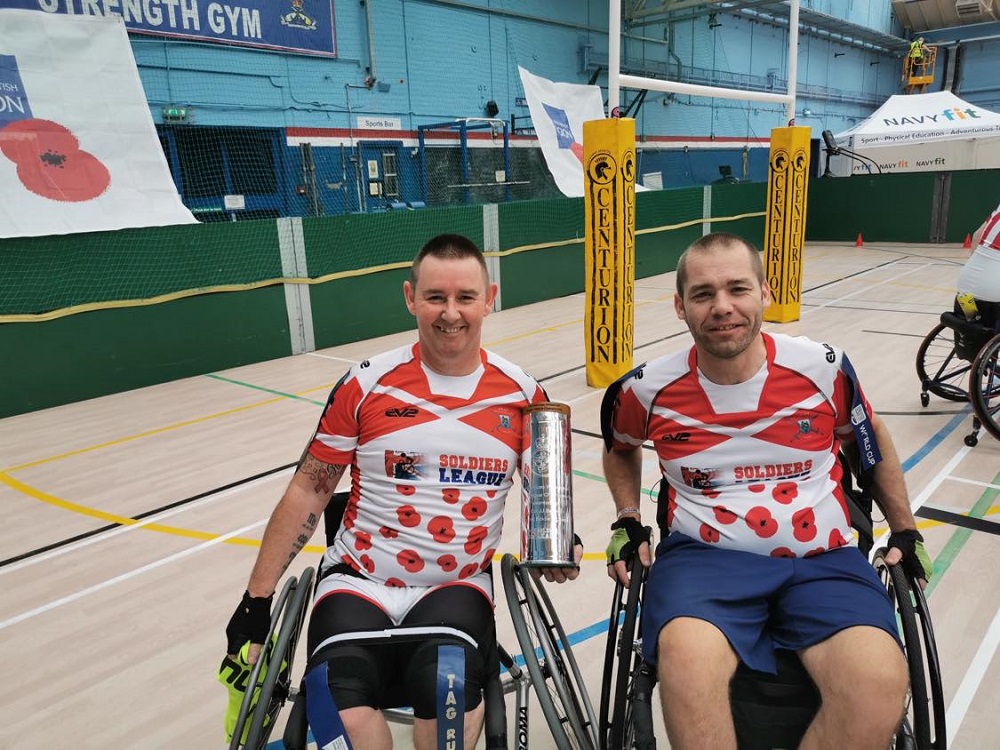 “I captained the club for two years and having a responsibility like that helped massively in supporting my mental health and my outlook on life.
“I captained the club for two years and having a responsibility like that helped massively in supporting my mental health and my outlook on life.
“Wheelchair rugby is a hugely inclusive sport. Despite both being able bodied, my son and wife took up the sport, and it is hugely rewarding to be able to do a sport as a family. They both love it as much as me!”
In December 2021, Alan moved to Kirriemuir and after playing against the Dundee Dragons on numerous occasions he knew what a special club they are.
“I moved up to Scotland to better my quality of life and joined Dundee Dragons. It’s an amazing club and everyone is so supportive.
“I have got to meet so many amazing people through the club. I help with some of the wheelchair rugby and basketball coaching and it’s hugely beneficial for me in helping others in their journey, find something that they enjoy.
Alan’s outlook is a whole lot happier thanks to sport and physical activity.
“I have been using sport as part of my recovery for some time now.
"Sport is a massive part of my ‘toolbox’ to help me cope, and it has proved to not only be a massive benefit to me physically, but mentally.”
Find out more
Physical activity is central to good mental health and wellbeing. By finding ways to fit activity into your day, you will feel a difference in your mood and energy levels. SAMH, Public Health Scotland and sportscotland are working together to help you #FeelYourPersonalBest.
- Visit Feel Your Personal Best for more details
- If you’re struggling with your mental health visit SAMH
- For help Understanding Anger
- For help Understanding Depression
- For further information and support on PTSD
- Get active for your mental health – Top 10 tips
- How is your wellbeing? Take the SAMH self-assessment

